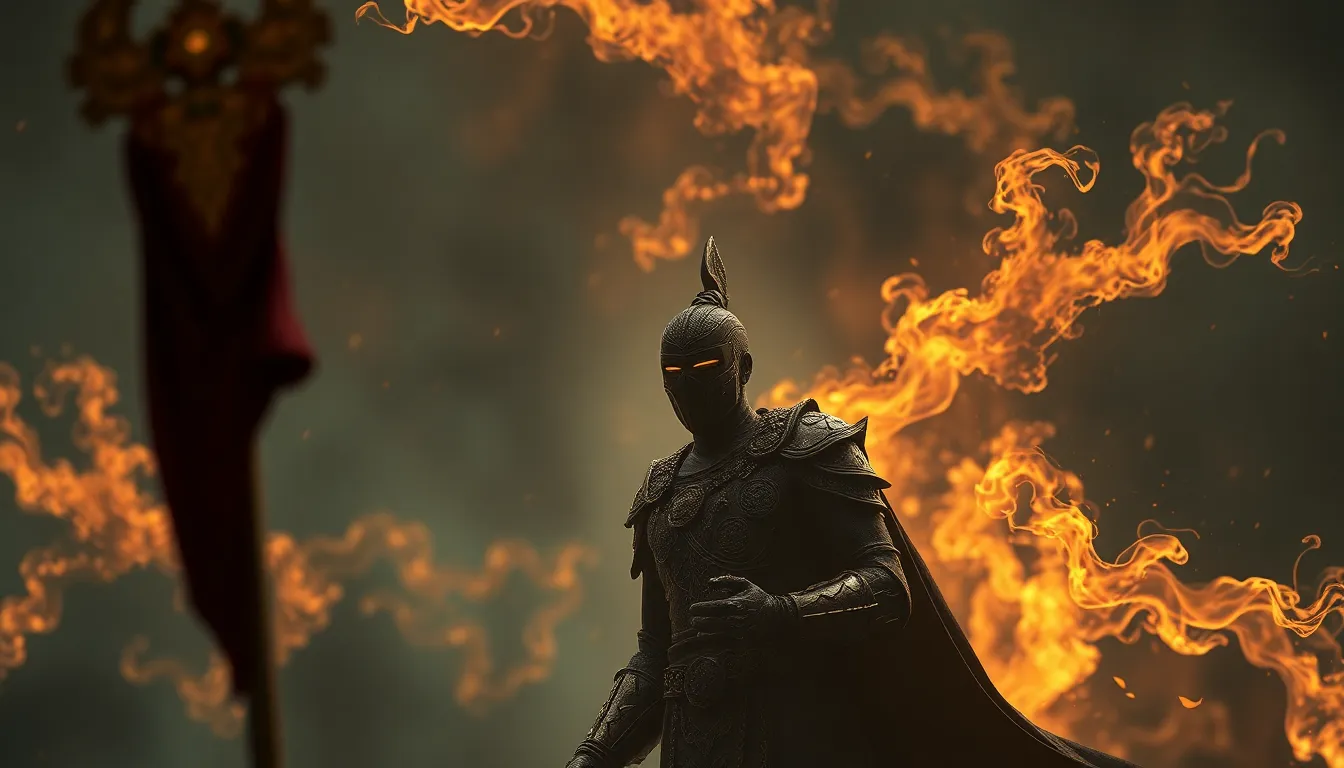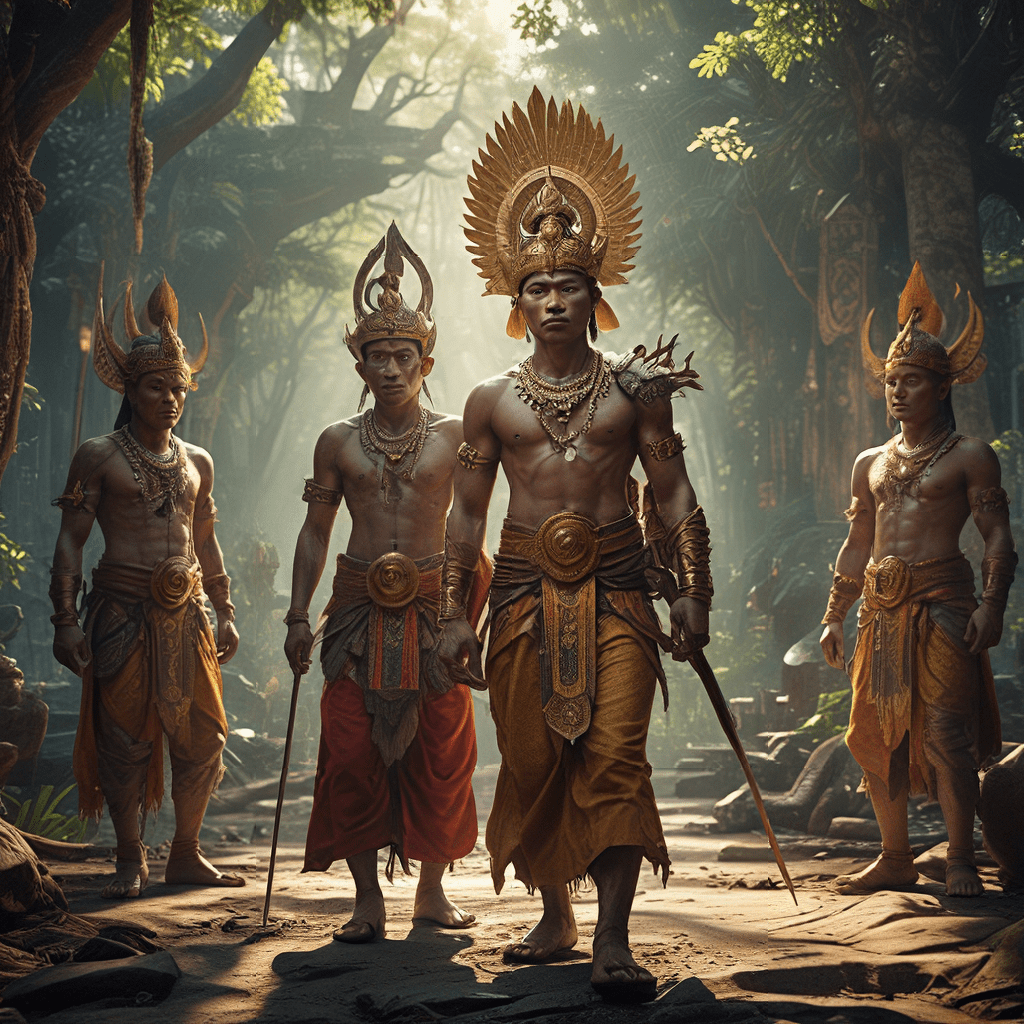The Role of Cultural Hero Myths in Shaping Identity
1. Introduction to Cultural Hero Myths
Cultural hero myths are narratives that celebrate the extraordinary deeds of individuals who embody the values, ideals, and morals of a society. These myths are not just stories; they serve as a means of understanding the world and ourselves. They play a pivotal role in shaping our identities by providing frameworks through which we can interpret our experiences and aspirations.
Throughout history, myths have been integral to human societies, influencing beliefs, traditions, and social norms. They offer models of behavior and courage, as well as cautionary tales that guide individuals in their personal and communal lives. By examining the narratives of cultural heroes, we can better understand how they contribute to our sense of self and collective identity.
2. Historical Context of Hero Myths
Hero myths have existed across various cultures and epochs, each reflecting the unique values and struggles of its people. For instance, in Ancient Greece, heroes like Hercules exemplified strength and perseverance, while in Arthurian legend, King Arthur symbolized nobility and justice. In African folklore, figures like Anansi the Spider represent cleverness and resourcefulness.
- Hercules: A demigod known for his strength and heroic feats.
- King Arthur: A legendary king who embodies the ideals of chivalry.
- Anansi: A trickster figure, representing wisdom and storytelling.
Over time, these myths have evolved, adapting to changing societal contexts and values, yet their core messages often remain relevant, illustrating the enduring nature of hero narratives.
3. Psychological Impact of Hero Myths
Hero myths tap into universal archetypes that resonate with individuals on a psychological level. According to Jungian psychology, these archetypes serve as templates for understanding our identities and experiences. Heroes represent aspects of ourselves that we aspire to embody, such as bravery, resilience, and integrity.
Moreover, hero myths can significantly impact an individual’s self-concept. By identifying with a hero, people can find motivation and inspiration, shaping their personal narratives and guiding their actions. The stories of heroes often encourage individuals to overcome challenges and pursue their goals, thereby fostering a sense of agency and purpose.
4. Cultural Significance and Societal Values
Hero myths are mirrors reflecting cultural values and societal norms. They encapsulate the virtues that a community holds dear, such as honor, sacrifice, and loyalty. These narratives are instrumental in transmitting moral lessons and ethical principles to younger generations.
As societies evolve, so too do hero myths, often adapting to reflect societal changes. For example, the portrayal of heroes has shifted to include more diverse representations, highlighting values such as inclusivity and justice. This adaptability ensures that hero myths remain relevant and continue to resonate with contemporary audiences.
5. Representation and Diversity in Hero Myths
Inclusive representation in hero narratives is crucial for fostering a sense of belonging among all cultural groups. When diverse voices are included, it allows individuals from underrepresented backgrounds to see themselves in these stories, which can significantly impact their identity formation.
- Case Study – Mulan: A Chinese heroine who defies gender norms to protect her family and country.
- Case Study – Chaka Zulu: A legendary African king who united tribes and is celebrated for his military prowess.
- Case Study – Wonder Woman: A symbol of strength and empowerment for women worldwide.
Diverse hero myths serve to validate the experiences of marginalized groups, promoting a broader understanding of heroism that transcends traditional narratives.
6. Hero Myths in Modern Media
In contemporary literature, film, and television, hero myths continue to thrive, often reimagined to suit modern sensibilities. The rise of anti-heroes, characters who embody both heroic and flawed qualities, challenges traditional notions of heroism and complicates our understanding of identity.
Modern adaptations of classic hero myths often explore themes of redemption, moral ambiguity, and the quest for identity, reflecting the complexities of contemporary life. These narratives encourage audiences to question the nature of heroism and consider the multifaceted identities of individuals.
7. The Role of Hero Myths in National Identity
Nations often construct their identities through the lens of hero myths, celebrating figures who embody national ideals. For instance, George Washington is revered as a founding father in the United States, symbolizing leadership and sacrifice, while Nelson Mandela represents resilience and the struggle for justice in South Africa.
These narratives serve not only to inspire pride and unity but also to perpetuate specific values and ideologies that align with national interests. The relationship between hero myths and nationalism can be both empowering and divisive, depending on how these narratives are utilized.
8. Myths, Conflict, and Identity
Hero myths can play a significant role in shaping group identity, especially during times of conflict. They often serve as rallying points for communities, fostering solidarity and a shared sense of purpose. However, opposing hero narratives can also lead to division and strife.
- Example – The American Civil War: Different hero myths emerged from both the Union and Confederate perspectives, each shaping their respective identities.
- Example – The Israeli-Palestinian Conflict: Competing narratives of heroism contribute to the ongoing struggle for identity and recognition.
Understanding these dynamics is crucial for addressing the social movements and conflicts that arise from differing hero myths and identities.
9. The Future of Hero Myths in a Globalized World
Globalization has led to the blending and sharing of cultural narratives, impacting traditional hero myths. As societies become more interconnected, there is potential for new hero myths to emerge that reflect the complexities of a multicultural world.
Moreover, the digital age allows for the rapid dissemination of stories, enabling diverse hero narratives to reach a broader audience. This evolution presents exciting opportunities for reinterpreting heroism and identity in ways that resonate with contemporary global challenges.
10. Conclusion: The Enduring Legacy of Hero Myths
In summary, cultural hero myths play an essential role in shaping individual and collective identities. They not only reflect societal values and norms but also inspire individuals to aspire to greatness. As we navigate a world marked by diversity and change, the importance of hero myths in understanding ourselves and our communities remains as relevant as ever.
Ultimately, hero myths are not static; they evolve alongside us, adapting to our needs and experiences. Their enduring legacy will continue to influence future generations, helping to shape identities in an increasingly complex world.




